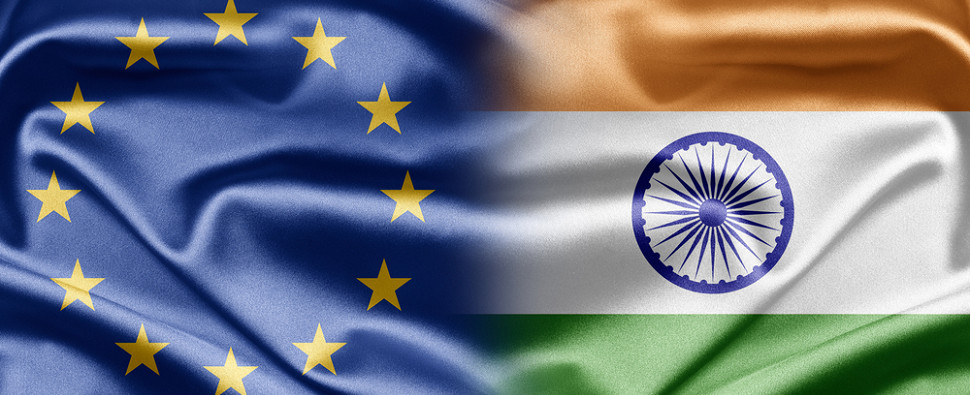EU delegation in India
February 25, 2017 | Expert Insights

What are the Mutual Trade-offs Expected?
Four Members of European Parliament (MEP) are visiting India to prepare for the EU-India Summit scheduled later in 2017 in New Delhi. The objective is to develop a EU-India relations report, traversing defence to human rights. Mr. Amjad Bashir (UK) of Pakistani origin and a fierce speaker on violence in J&K was due to accompany the delegation. His visa was however denied by the Indian High Commission, UK. Mr. McAllister intends to discuss this with India.
What is the Focus on?
Mr. McAllister has indicated human rights concerns in Kashmir are an internal issue. This is a change in stance from previous disapproval of Indian policy on the matter. Around 20,000 NGO licences (out of 33,000) have been cancelled by the Indian Home Ministry. These correspond to the Foreign Contribution Regulation Act (FCRA). 9,500 were cancelled in 2015 and 11,000 others lapsed owing to failure of timely renewal applications. The move was enforced as the NGOs were found to be violating FCRA provisions. The concerned NGOs are no longer eligible to receive foreign funding. The MEP team however has been critical of the move.
Also, Mr. McAllister has indicated that EU is seeking the strengthening of trade ties and resumption of the EU-India Broad-based Trade and Investment Agreement (BTIA). He also condemned US protectionist views. An Indian delegation is due to visit the EU for talks. The focus then shall be on immigration of skilled professionals to the EU.
What does this Signify?
A changed stance on Kashmir indicates an initiation of empathy for the Indian perspective. However, it is in trade off to garner Indian support in opposition to Russia’s involvement in Ukraine. India’s long standing relationship with Russia will nonetheless take precedence over assuming a provocative stance. Visa denial to Mr. Bashir, potentially on grounds of differing views on Kashmir, does not bode well with the MEPs. At an international level, this may depict India as unreceptive. The MEPs’ disapproval of India’s cancellation of NGOs’ FCRA licenses does not recognise India’s efforts to ensure regulatory compliance and prevent misuse of funds.
Assessment
With uncertainty stemming from BREXIT and Mr. Trump’s US Presidency, the proposition to revive BTIA talks and strengthen trade between the EU and India may prove to be advantageous to both in the long run. The potential loss of jobs for Indians in the US IT sector could be balanced with relocating those skilled roles to the EU. This may serve to safeguard Indian interest as well as boost the Eurozone.








Comments